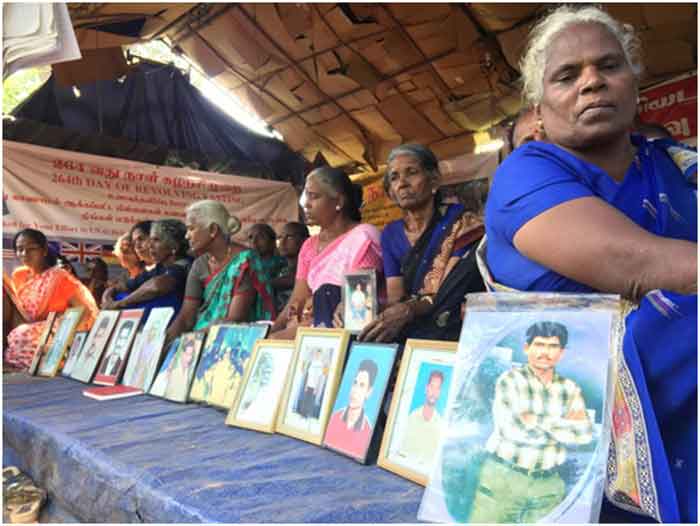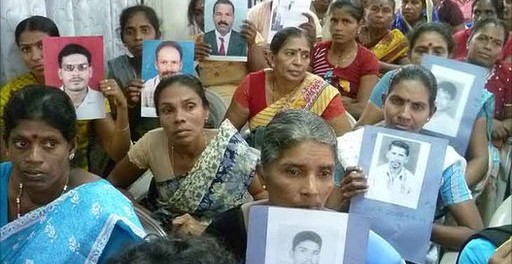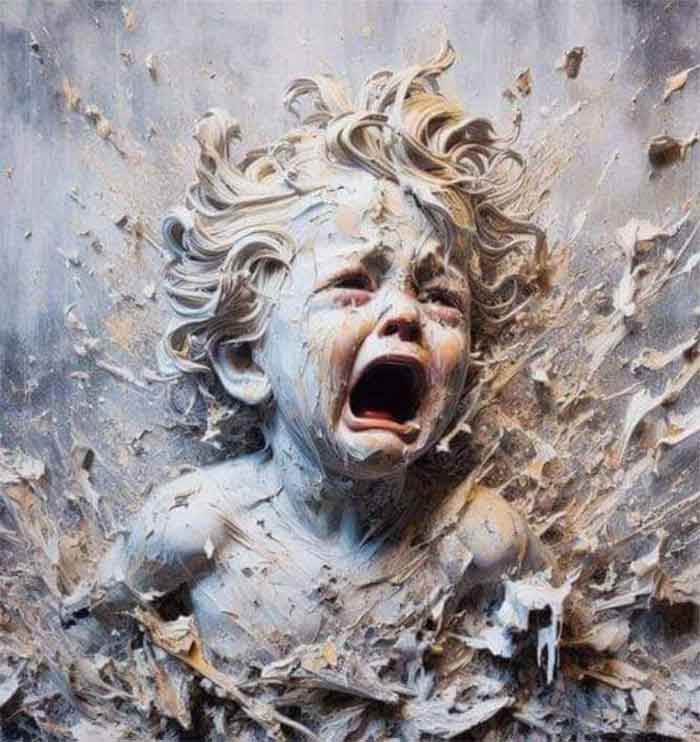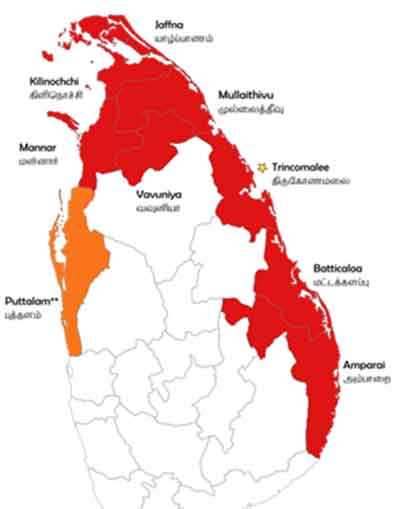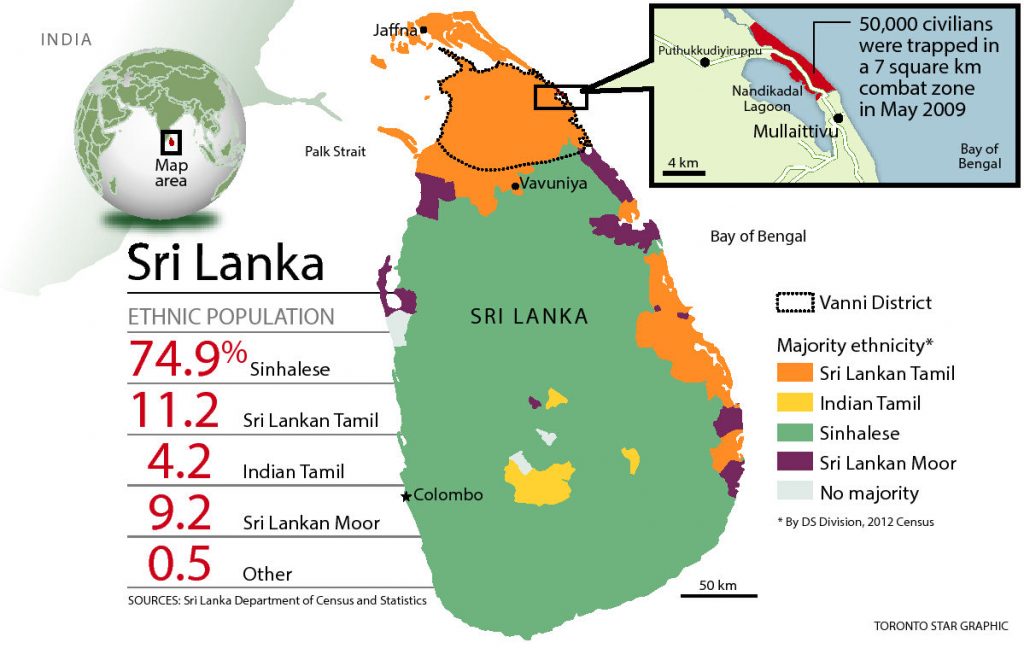
Tamils have little interest in reconciliation without resolution of the political issues. Proper reconciliation can come only after a political solution is found…
With successive Governments refusing to acknowledge, let alone address the political issues that lie at the core of the conflict, the alienation of Tamils will remain high. In the circumstances, reconciliation remains a distant dream.
An internationally supervised interim period, a fear-free period, set for the independence of Eelam Tamils would bring in a lot of desired results in genuine development, participation of people and it will alleviate if there are any fears about new leadership emerging from Eelam Tamils. Considering long-term interests, Colombo on its own, should involve in such a process and India could be given with a special role if it has any fear in international solutions coming to its backyard.
War crimes investigation and delivery of justice are duties of humanity and its institutions, whatever time it may take. The victims pressing for justice and providing evidence are their duty, not only for the sake of themselves but also for the sake of human civilization, to stop for ever anti-people establishments trying what they did to Eelam Tamils with others.
As ten years passed since the end of the war, which lasted almost three decades, and though nearly seven decades have lapsed since the commencement of exclusionary policies targeting the Tamil people, various pledges made by the Government of Sri Lanka with regard to human rights, accountability and evolving a political settlement have not been fulfilled. The post-independence history of Sri Lanka contains stark reminders of the disturbing ramifications of broken promises and recurring violence.
The government’s callous disregard for fulfilling its own promises applies equally to the government’s assurances on human rights. In 2006, the Udalagama Commission of Inquiry [CoI] was mandated with the power to investigate a number of grave human rights abuses including the killing of five Tamil students in Trincomalee and the massacre of 17 aid workers in Muttur. On 13 May 2008, Mr. Yasantha Kodagoda, a senior officer of the Attorney General’s Department and a member of the Sri Lankan delegation at the UNHRC made the following assurances to the Council:
“Mr. President, let me assure you that all cases involving human rights violations will continue to be impartially and comprehensively investigated and inquired into by the several agencies entrusted with that task including the CoI, and their findings made public and perpetrators prosecuted in court.”
The CoI was designed to fail. Four of the Commissioners resigned during the course of its sittings. Moreover, there were major conflicts of interest involving the office of the Attorney General. On the one hand, officers of the Attorney General’s Department led evidence of the victims at the CoI. On the other, these same officers advised and defended the government at international forum despite the fact that the government’s security forces were accused of those crimes. The absence of victim and witness protection laws also posed serious challenges to the credibility of the CoI.
In light of the fact that most key witnesses had sought refuge overseas, the CoI commenced recording their evidence, including that of Dr. Manoharan, the father of one of the five students executed in Trincomalee, through video conferencing. This was arbitrarily discontinued and brought to an abrupt end. Thereafter, the government tabled a weak Victim and Witness Protection Bill in Parliament, which was not proceeded with and subsequently abandoned. The lack of witness and victim protection mechanisms has severely undermined the work of Commissions of Inquiry in Sri Lanka, including the Udalagama CoI and the LLRC.
An International Independent Group of Eminent Persons [IIGEP] chaired by former Chief Justice of India, J. N Bhagwati, was charged with observing the proceedings of the Udalagama CoI, to offer suggestions, and to assess the conduct of the proceedings against international norms and standards. In March 2008, however, the IIGEP terminated their involvement with the CoI, stating:
“… the IIGEP concludes that the proceedings of inquiry and investigation have fallen far short of the transparency and compliance with basic international norms and standards pertaining to investigations and inquiries. The IIGEP has time and again pointed out the major flaws of the process: first and foremost, the conflict of interest at all levels, in particular with regard to the role of the Attorney General’s Department. Additional flaws include the restrictions on the operation of the Commission through lack of proper funding and independent support staff; poor organization of the hearings and lines of questioning; refusal of the State authorities at the highest level to fully cooperate with the investigations and inquiries; and the absence of an effective and comprehensive system of witness protection … These inherent and fundamental impediments inevitably lead to the conclusion that there has been and continues to be a lack of political and institutional will to investigate and inquire into the cases before the Commission. The IIGEP is therefore terminating its role in the process not only because of the shortcomings in the Commission’s work but primarily because the IIGEP identifies an institutional lack of support for the work of the Commission.” [IIGEP Public Statement, 6 March 2008].
UNITED NATIONS AND UNHRC’S RESPONSIBILITIES:
As the opportunities for post war peace and reconciliation in Sri Lanka gradually slip away, the members of the UNHRC must act urgently to prevent an ominous slide towards a recurrence of the tragedies of the past.
The Council must ensure that the Sri Lankan government immediately takes steps to offer a political solution to the Tamil people to resolve the long-festering and deep-seated national problem and also address serious concerns about human rights and governance.
The Council must also urgently address questions of truth and justice relating to grave violations of international human rights and humanitarian law, in order to transform the culture of impunity prevailing in the country to one of accountability.
The Sri Lankan government has persistently claimed that, if provided time and space, it will evolve homegrown processes that will address the need for a political solution, improvement in human rights and accountability. This claim must be evaluated against the chronic unwillingness of the government to honor its own commitments to the people of Sri Lanka and the international community. Some of these commitments have been repeated for many years, with no progress made on the ground.
Moreover, the trajectory of the government’s conduct indicates that, if given time and space, that time and space will be utilized to pursue the agenda that the government has brazenly undertaken despite assurances to the contrary. That agenda entails the silencing of the democratic voice of the Tamil people, the entrenching of power at the centre and the transformation of the linguistic, cultural and religious composition of the North and East so as to negate the need for a political solution.
Sri Lanka’s failure to make good on its own assurances requires that the Council act now. The principle of complementarily in international law requires that where a state is unwilling or unable to institute credible measures to advance justice in keeping with its commitments, international mechanisms must be activated.
The failure of the Council to act will enable governments, which in fact demonstrate no commitment to change, to escape their obligations by merely making empty promises of reform. This will entrench a dangerous and harmful precedent of Council sanctioned impunity.
Kumarathasan Rasingam, Secretary, Tamil Canadian Elders for Human rights Org.

